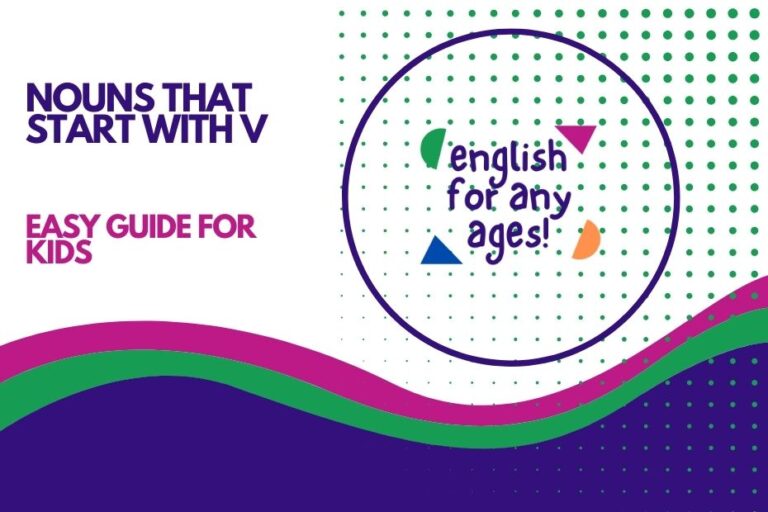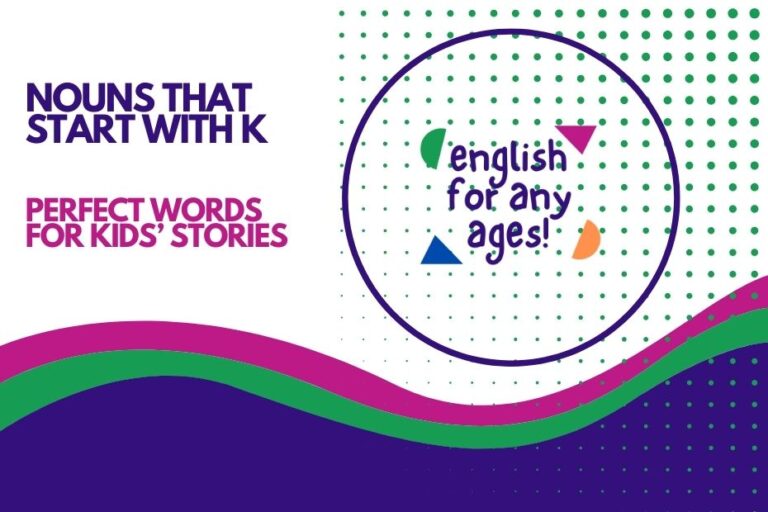Mastering “Matterhorn”: A Grammatical Guide
The Matterhorn, an iconic peak in the Swiss Alps, is more than just a geographical landmark; it’s a proper noun with specific grammatical implications. Understanding how to correctly use “Matterhorn” in a sentence is crucial for clear and accurate communication, whether you’re writing a travel blog, an academic paper, or simply discussing your dream vacation.
This comprehensive guide will explore the grammatical properties of “Matterhorn,” providing detailed explanations, examples, and practice exercises to help you master its usage. This guide benefits English language learners, travel writers, geography students, and anyone aiming to improve their writing skills.
Table of Contents
- Introduction
- Definition of “Matterhorn”
- Structural Breakdown
- Types and Categories of Usage
- Examples of “Matterhorn” in Sentences
- Usage Rules for “Matterhorn”
- Common Mistakes
- Practice Exercises
- Advanced Topics
- Frequently Asked Questions
- Conclusion
Introduction
The name “Matterhorn” conjures images of a majestic, snow-capped mountain. However, its grammatical function often goes unnoticed.
Using proper nouns like “Matterhorn” correctly enhances the clarity and precision of your writing. This article provides a structured approach to understanding the grammatical nuances of “Matterhorn,” ensuring you can confidently incorporate it into your writing and speech.
From basic definitions to advanced usage, we’ll cover everything you need to know.
Definition of “Matterhorn”
The “Matterhorn” is primarily a proper noun. A proper noun is a specific name for a person, place, or thing, and it is always capitalized in English. In this case, “Matterhorn” refers to a specific mountain located in the Alps, on the border between Switzerland and Italy. Its function in a sentence is typically as a subject, object, complement, or modifier.
The word “Matterhorn” can be classified as a singular noun, as it refers to one specific mountain. Its primary function is to identify this particular geographical landmark. The context in which “Matterhorn” is used often involves discussions about geography, mountaineering, tourism, or European culture. Understanding the definition and classification of “Matterhorn” is the first step to using it correctly in various sentence structures.
Structural Breakdown
Structurally, “Matterhorn” functions as a noun within a sentence. It can be the subject of a verb, the object of a verb or preposition, or part of a noun phrase.
Understanding the structural role helps in constructing grammatically correct sentences. Here’s a breakdown:
- Subject: The Matterhorn dominates the skyline.
- Object of a verb: We climbed the Matterhorn.
- Object of a preposition: The village lies at the foot of the Matterhorn.
- Modifier: The Matterhorn peak is famous worldwide.
The grammatical structure surrounding “Matterhorn” often involves articles (the), prepositions (of, near, to), and verbs that describe actions related to it (climb, view, admire). Recognizing these patterns aids in sentence construction.
The placement of “Matterhorn” within a sentence significantly impacts its grammatical function and the overall meaning of the sentence.
Types and Categories of Usage
While “Matterhorn” primarily functions as a proper noun, its usage can be categorized based on its role within a sentence. These categories help illustrate the versatility of “Matterhorn” in different contexts.
Subject
When “Matterhorn” acts as the subject, it performs the action or is described by the verb. This is one of the most straightforward uses.
Object of a Verb
As an object of a verb, “Matterhorn” receives the action. This usage often involves verbs related to climbing, viewing, or photographing.
Object of a Preposition
When used as the object of a preposition, “Matterhorn” is linked to another element in the sentence, often describing location or relationship.
Modifier (Attributive Noun)
In some cases, “Matterhorn” can act as an attributive noun, modifying another noun. This usage is less common but still grammatically correct.
Examples of “Matterhorn” in Sentences
The following examples illustrate the various ways “Matterhorn” can be used in a sentence. These examples are categorized by the grammatical function of “Matterhorn” to provide a clear understanding of its usage.
Examples of “Matterhorn” as a Subject
In these sentences, “Matterhorn” is the subject performing the action or being described.
| Sentence | Explanation |
|---|---|
| The Matterhorn is a famous mountain. | “Matterhorn” is the subject, and “is” is the verb. |
| The Matterhorn dominates the Zermatt skyline. | “Matterhorn” is the subject, and “dominates” is the verb. |
| The Matterhorn attracts climbers from around the world. | “Matterhorn” is the subject, and “attracts” is the verb. |
| The Matterhorn stands tall against the blue sky. | “Matterhorn” is the subject, and “stands” is the verb. |
| The Matterhorn glistens in the morning sun. | “Matterhorn” is the subject, and “glistens” is the verb. |
| The Matterhorn is often covered in snow. | “Matterhorn” is the subject, and “is” is the verb. |
| The Matterhorn presents a challenging climb. | “Matterhorn” is the subject, and “presents” is the verb. |
| The Matterhorn is a symbol of Switzerland. | “Matterhorn” is the subject, and “is” is the verb. |
| The Matterhorn appears on many postcards. | “Matterhorn” is the subject, and “appears” is the verb. |
| The Matterhorn inspires awe in visitors. | “Matterhorn” is the subject, and “inspires” is the verb. |
| The Matterhorn is a popular tourist destination. | “Matterhorn” is the subject, and “is” is the verb. |
| The Matterhorn remains a formidable peak. | “Matterhorn” is the subject, and “remains” is the verb. |
| The Matterhorn casts a long shadow in the afternoon. | “Matterhorn” is the subject, and “casts” is the verb. |
| The Matterhorn is visible from many vantage points. | “Matterhorn” is the subject, and “is” is the verb. |
| The Matterhorn is known for its distinctive shape. | “Matterhorn” is the subject, and “is” is the verb. |
| The Matterhorn is a part of the Pennine Alps. | “Matterhorn” is the subject, and “is” is the verb. |
| The Matterhorn endures harsh weather conditions. | “Matterhorn” is the subject, and “endures” is the verb. |
| The Matterhorn is a challenge for even experienced climbers. | “Matterhorn” is the subject, and “is” is the verb. |
| The Matterhorn changes color with the changing light. | “Matterhorn” is the subject, and “changes” is the verb. |
| The Matterhorn is a natural wonder. | “Matterhorn” is the subject, and “is” is the verb. |
| The Matterhorn has captured the imagination of people for centuries. | “Matterhorn” is the subject, and “has captured” is the verb. |
| The Matterhorn has become a symbol of adventure. | “Matterhorn” is the subject, and “has become” is the verb. |
| The Matterhorn provides a stunning backdrop for photos. | “Matterhorn” is the subject, and “provides” is the verb. |
| The Matterhorn is a testament to the power of nature. | “Matterhorn” is the subject, and “is” is the verb. |
| The Matterhorn is protected as a natural heritage site. | “Matterhorn” is the subject, and “is protected” is the verb. |
Examples of “Matterhorn” as an Object of a Verb
Here, “Matterhorn” is the object that receives the action of the verb.
| Sentence | Explanation |
|---|---|
| We climbed the Matterhorn. | “Matterhorn” is the object of the verb “climbed.” |
| They photographed the Matterhorn. | “Matterhorn” is the object of the verb “photographed.” |
| I viewed the Matterhorn from Zermatt. | “Matterhorn” is the object of the verb “viewed.” |
| He admired the Matterhorn from afar. | “Matterhorn” is the object of the verb “admired.” |
| She sketched the Matterhorn in her notebook. | “Matterhorn” is the object of the verb “sketched.” |
| Tourists visit the Matterhorn every year. | “Matterhorn” is the object of the verb “visit.” |
| Many dream of conquering the Matterhorn. | “Matterhorn” is the object of the verb “conquering.” |
| The artist painted the Matterhorn at sunset. | “Matterhorn” is the object of the verb “painted.” |
| The documentary featured the Matterhorn. | “Matterhorn” is the object of the verb “featured.” |
| The climber challenged the Matterhorn. | “Matterhorn” is the object of the verb “challenged.” |
| The movie showcased the Matterhorn. | “Matterhorn” is the object of the verb “showcased.” |
| Adventurers explore the Matterhorn region. | “Matterhorn” is the object of the verb “explore.” |
| Hikers approach the Matterhorn with caution. | “Matterhorn” is the object of the verb “approach.” |
| Pilots fly over the Matterhorn. | “Matterhorn” is the object of the verb “fly over.” |
| Travelers seek the Matterhorn’s beauty. | “Matterhorn” is the object of the verb “seek.” |
| Scientists study the Matterhorn’s geology. | “Matterhorn” is the object of the verb “study.” |
| Historians document the Matterhorn’s history. | “Matterhorn” is the object of the verb “document.” |
| Photographers capture the Matterhorn’s majesty. | “Matterhorn” is the object of the verb “capture.” |
| Visitors remember the Matterhorn forever. | “Matterhorn” is the object of the verb “remember.” |
| The guide described the Matterhorn. | “Matterhorn” is the object of the verb “described.” |
| The climbers attempted the Matterhorn. | “Matterhorn” is the object of the verb “attempted.” |
| He planned to climb the Matterhorn next year. | “Matterhorn” is the object of the verb “to climb.” |
| She wanted to see the Matterhorn up close. | “Matterhorn” is the object of the verb “to see.” |
| They hoped to photograph the Matterhorn at dawn. | “Matterhorn” is the object of the verb “to photograph.” |
| We expected to view the Matterhorn from our hotel. | “Matterhorn” is the object of the verb “to view.” |
Examples of “Matterhorn” as an Object of a Preposition
In these sentences, “Matterhorn” follows a preposition, indicating a relationship or location.
| Sentence | Explanation |
|---|---|
| The village lies at the foot of the Matterhorn. | “Matterhorn” is the object of the preposition “of.” |
| We hiked near the Matterhorn. | “Matterhorn” is the object of the preposition “near.” |
| The trail leads to the Matterhorn. | “Matterhorn” is the object of the preposition “to.” |
| They took pictures from the base of the Matterhorn. | “Matterhorn” is the object of the preposition “of.” |
| The view of the Matterhorn was breathtaking. | “Matterhorn” is the object of the preposition “of.” |
| The avalanche occurred on the slopes of the Matterhorn. | “Matterhorn” is the object of the preposition “of.” |
| The climbers rested before ascending the Matterhorn. | “Matterhorn” is the object of the preposition “ascending.” |
| The hotel is located close to the Matterhorn. | “Matterhorn” is the object of the preposition “to.” |
| The cable car goes up towards the Matterhorn. | “Matterhorn” is the object of the preposition “towards.” |
| The path winds around the Matterhorn. | “Matterhorn” is the object of the preposition “around.” |
| The shadow fell across the Matterhorn. | “Matterhorn” is the object of the preposition “across.” |
| The snow sparkled on the Matterhorn. | “Matterhorn” is the object of the preposition “on.” |
| The wind howled around the Matterhorn. | “Matterhorn” is the object of the preposition “around.” |
| The clouds gathered above the Matterhorn. | “Matterhorn” is the object of the preposition “above.” |
| The valley stretches below the Matterhorn. | “Matterhorn” is the object of the preposition “below.” |
| The sun set behind the Matterhorn. | “Matterhorn” is the object of the preposition “behind.” |
| The light reflected off the Matterhorn. | “Matterhorn” is the object of the preposition “off.” |
| The journey ended at the Matterhorn. | “Matterhorn” is the object of the preposition “at.” |
| The expedition started from the Matterhorn’s base. | “Matterhorn” is the object of the preposition “from.” |
| The legend revolves around the Matterhorn. | “Matterhorn” is the object of the preposition “around.” |
| The research focused on the Matterhorn’s geology. | “Matterhorn” is the object of the preposition “on.” |
| The debate centered on the Matterhorn’s safety. | “Matterhorn” is the object of the preposition “on.” |
| The film was shot in the shadow of the Matterhorn. | “Matterhorn” is the object of the preposition “of.” |
| The article discussed the challenges of climbing the Matterhorn. | “Matterhorn” is the object of the preposition “of.” |
| The conference addressed the environmental impact on the Matterhorn. | “Matterhorn” is the object of the preposition “on.” |
Examples of “Matterhorn” as a Modifier (Attributive Noun)
In these instances, “Matterhorn” modifies another noun, acting as an adjective.
| Sentence | Explanation |
|---|---|
| The Matterhorn peak is iconic. | “Matterhorn” modifies “peak.” |
| We stayed at a Matterhorn hotel. | “Matterhorn” modifies “hotel.” |
| The Matterhorn museum showcases its history. | “Matterhorn” modifies “museum.” |
| The Matterhorn region attracts many tourists. | “Matterhorn” modifies “region.” |
| The Matterhorn climb is challenging. | “Matterhorn” modifies “climb.” |
| The Matterhorn view is stunning. | “Matterhorn” modifies “view.” |
| A Matterhorn guide led our group. | “Matterhorn” modifies “guide.” |
| We bought a Matterhorn postcard. | “Matterhorn” modifies “postcard.” |
| The Matterhorn trail is well-maintained. | “Matterhorn” modifies “trail.” |
| The Matterhorn experience was unforgettable. | “Matterhorn” modifies “experience.” |
| We enjoyed a Matterhorn sunset. | “Matterhorn” modifies “sunset.” |
| The Matterhorn landscape is breathtaking. | “Matterhorn” modifies “landscape.” |
| The Matterhorn adventure was thrilling. | “Matterhorn” modifies “adventure.” |
| The Matterhorn panorama is impressive. | “Matterhorn” modifies “panorama.” |
| The Matterhorn expedition was successful. | “Matterhorn” modifies “expedition.” |
| The Matterhorn tour was informative. | “Matterhorn” modifies “tour.” |
| The Matterhorn climb requires preparation. | “Matterhorn” modifies “climb.” |
| The Matterhorn trip was memorable. | “Matterhorn” modifies “trip.” |
| The Matterhorn challenge is significant. | “Matterhorn” modifies “challenge.” |
| The Matterhorn project aims to preserve the mountain. | “Matterhorn” modifies “project.” |
| The Matterhorn ascent is a test of skill. | “Matterhorn” modifies “ascent.” |
| The Matterhorn area is known for its beauty. | “Matterhorn” modifies “area.” |
| The Matterhorn race is an annual event. | “Matterhorn” modifies “race.” |
| The Matterhorn festival celebrates mountain culture. | “Matterhorn” modifies “festival.” |
| The Matterhorn route is popular among climbers. | “Matterhorn” modifies “route.” |
Usage Rules for “Matterhorn”
The primary rule is to always capitalize “Matterhorn” because it is a proper noun. Additionally, remember to use the definite article “the” when referring to “Matterhorn” in a general context or when it is the object of a verb. However, “the” can be omitted when “Matterhorn” is used as a modifier.
Another important rule is to maintain the correct spelling. Misspelling “Matterhorn” can detract from your writing’s credibility.
Context also matters; ensure the sentence accurately reflects a situation involving the mountain itself, not something else with a similar name.
Exception: When used attributively (as a modifier), the article “the” is often dropped. For example, “Matterhorn hotel” instead of “the Matterhorn hotel.”
Common Mistakes
One common mistake is failing to capitalize “Matterhorn.” Another is using the incorrect article (“a” instead of “the,” or omitting “the” when it’s needed). Misspellings are also frequent errors.
Here are some examples of common mistakes and their corrections:
| Incorrect | Correct | Explanation |
|---|---|---|
| matterhorn is a beautiful mountain. | Matterhorn is a beautiful mountain. | Proper nouns must be capitalized. |
| I climbed a Matterhorn. | I climbed the Matterhorn. | Use “the” when referring to a specific mountain. |
| We visited Matterhorn. | We visited the Matterhorn. | Use “the” when it is the object of the verb. |
| The Matterhorn peak is iconic. | The Matterhorn peak is iconic. | Correct spelling is crucial. |
| The Matterhorn’s is beautiful. | The Matterhorn is beautiful. | Avoid unnecessary possessives. |
| Matterhorn hotel is expensive. | The Matterhorn hotel is expensive. | Normally you would use the article “the”. |
| Matterhorn hotel is expensive. | Matterhorn hotel is expensive. | In this instance, the article can be dropped as it is used attributively. |
| The Matterhorn, it is tall. | The Matterhorn is tall. | Avoid unnecessary pronouns. |
Practice Exercises
Test your understanding of “Matterhorn” with these exercises. Fill in the blanks or correct the sentences.
Exercise 1: Fill in the Blanks
Complete the following sentences with the correct form of “Matterhorn” (with or without “the,” capitalized or not).
| # | Question | Answer |
|---|---|---|
| 1 | ______ is a famous landmark. | The Matterhorn |
| 2 | We hiked near ______. | the Matterhorn |
| 3 | ______ peak is stunning. | Matterhorn |
| 4 | They climbed ______ last summer. | the Matterhorn |
| 5 | The village lies at the foot of ______. | the Matterhorn |
| 6 | ______ attracts tourists from all over the world. | The Matterhorn |
| 7 | He took a picture of ______. | the Matterhorn |
| 8 | She dreamed of climbing ______. | the Matterhorn |
| 9 | The trail leads to ______. | the Matterhorn |
| 10 | ______ hotel offers great views. | Matterhorn |
Exercise 2: Correct the Sentences
Identify and correct the errors in the following sentences.
| # | Question | Answer |
|---|---|---|
| 1 | matterhorn is in Switzerland. | The Matterhorn is in Switzerland. |
| 2 | We saw a matterhorn. | We saw the Matterhorn. |
| 3 | The Matterhorn, it is very tall. | The Matterhorn is very tall. |
| 4 | Matterhorn is the most famous peak. | The Matterhorn is the most famous peak. |
| 5 | I want climb matterhorn. | I want to climb the Matterhorn. |
| 6 | The Matterhorn’s view is stunning. | The view of the Matterhorn is stunning. |
| 7 | She visited matterhorn last year. | She visited the Matterhorn last year. |
| 8 | matterhorn hotel is luxurious. | The Matterhorn hotel is luxurious. |
| 9 | The climbed matterhorn. | They climbed the Matterhorn. |
| 10 | He admired matterhorn from afar. | He admired the Matterhorn from afar. |
Exercise 3: Sentence Construction
Create your own sentences using “Matterhorn” in the following contexts.
| # | Context | Example Sentence |
|---|---|---|
| 1 | Subject of a sentence | The Matterhorn is a majestic mountain. |
| 2 | Object of a verb | We photographed the Matterhorn at sunrise. |
| 3 | Object of a preposition | The village is located near the Matterhorn. |
| 4 | Modifier | The Matterhorn climb is challenging. |
| 5 | Describing a trip | Our trip to see the Matterhorn was unforgettable. |
| 6 | Discussing climbing | Climbing the Matterhorn requires extensive preparation. |
| 7 | Mentioning the view | The view of the Matterhorn from Zermatt is breathtaking. |
| 8 | Talking about a hotel | We stayed at a Matterhorn hotel with a stunning view. |
| 9 | Describing the landscape | The Matterhorn landscape is rugged and beautiful. |
| 10 | Expressing admiration | I admire the Matterhorn for its imposing presence. |
Advanced Topics
For advanced learners, consider exploring the etymology of “Matterhorn” and its cultural significance. Research how the mountain has been depicted in art, literature, and film.
Also, delve into the geological history of the Matterhorn and its unique formation. Understanding these aspects provides a deeper appreciation of the noun and its context.
Additionally, explore the use of “Matterhorn” in metaphorical contexts. For example, “The project seemed like climbing the Matterhorn” uses the mountain as a symbol of a challenging and difficult task.
Analyzing such figurative uses enhances your understanding of the word’s versatility and expressive potential.
Frequently Asked Questions
Here are some common questions learners have about using “Matterhorn” in a sentence.
- Why is “Matterhorn” always capitalized?
Because “Matterhorn” is a proper noun, referring to a specific mountain. Proper nouns are always capitalized in English to distinguish them from common nouns.
- Do I always need to use “the” before “Matterhorn”?
Generally, yes, especially when “Matterhorn” is the subject or object of a verb. However, when used as an attributive noun (modifier), “the” is often omitted (e.g., “Matterhorn hotel”).
- What if I want to use “Matterhorn” in the possessive form?
You can use “Matterhorn’s” to show possession (e.g., “Matterhorn’s peak”). However, sometimes it’s more natural to rephrase the sentence (e.g., “the peak of the Matterhorn”).
- Can “Matterhorn” be used as an adjective?
Yes, “Matterhorn” can function as an attributive noun, which acts like an adjective, modifying another noun (e.g., “Matterhorn adventure”).
- Is it correct to say “a Matterhorn”?
No, it is incorrect. “Matterhorn” refers to a specific, unique mountain, so you should use “the Matterhorn.”
- What are some synonyms for “Matterhorn”?
There are no direct synonyms for “Matterhorn” as it is a proper noun. However, you can use descriptive phrases like “the iconic Swiss peak” or “the famous mountain in the Alps.”
- How do I avoid misspellings of “Matterhorn”?
Pay close attention to the spelling: M-a-t-t-e-r-h-o-r-n. Double-check your writing, and use spell-check tools.
- Can I use “Matterhorn” in a metaphorical sense?
Yes, you can use “Matterhorn” metaphorically to represent a challenging or formidable task. For example, “The project seemed like climbing the Matterhorn.”
Conclusion
Understanding the grammar of proper nouns like “Matterhorn” is essential for clear and precise communication. By mastering the capitalization rules, article usage, and various sentence structures, you can confidently incorporate “Matterhorn” into your writing and speech.
Remember to always capitalize “Matterhorn,” use “the” appropriately, and practice constructing sentences in different contexts. With these guidelines, you’ll be well-equipped to use “Matterhorn” correctly and effectively.
Continue to explore and practice to refine your understanding and usage.






